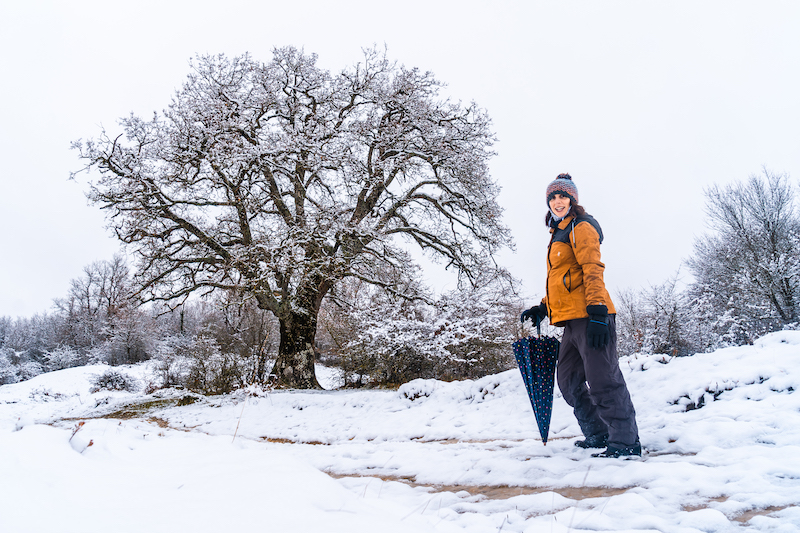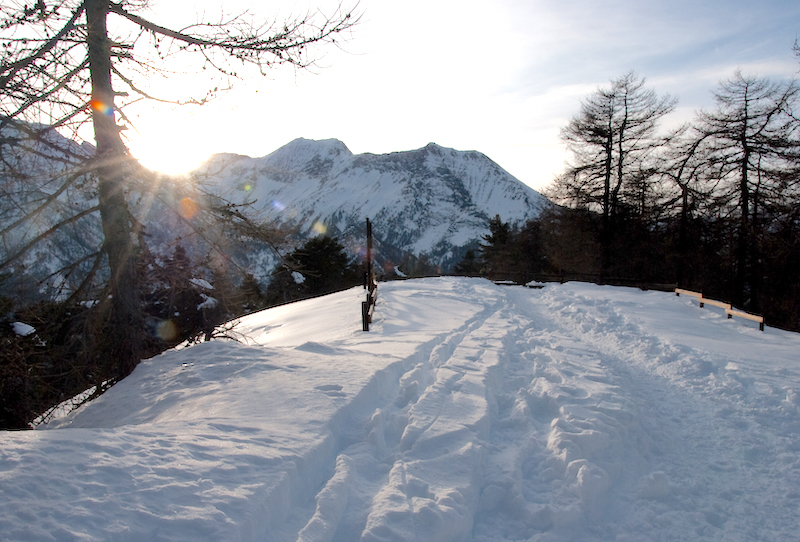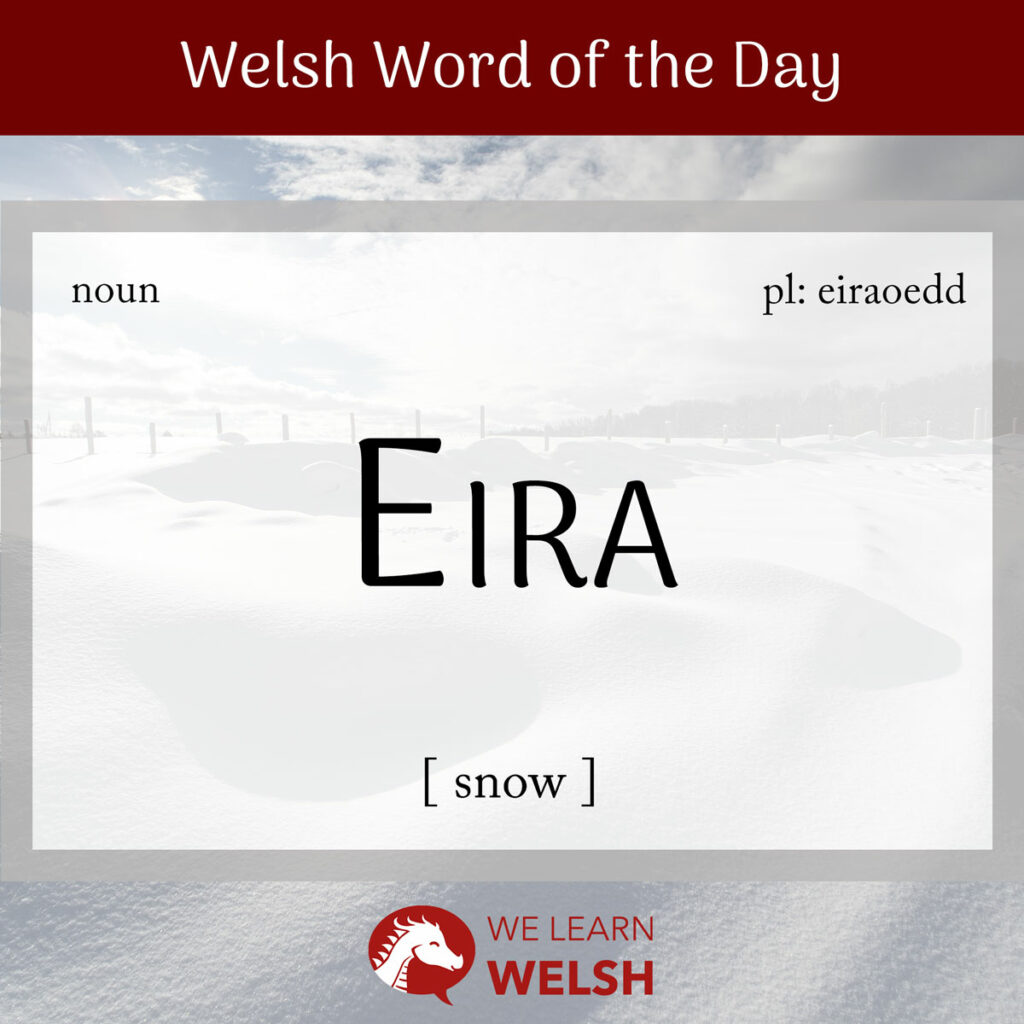Despite not seeing it very often, the Welsh have more than one word for that lovely white stuff that occasionally falls out of the sky during the cold months of the year! The most common term for snow in Welsh is eira, a word which most learners will have encountered in their textbook at some point.
Eira is generally considered uncountable, but if you did need to use a plural, it would be eiraoedd.
eira
snow
If you’re at that point on your Welsh learning journey when mutations are starting to make you groan, you’ll be pleased to know that the word eira has precisely none. And since it’s a masculine noun, adjectives used to describe it won’t mutate either. For example, white snow is simply eira gwyn.
Now, it could technically be affected by h-prosthesis. But this would only occur in the phrases ein heira (our snow), ei heira (her snow) and eu heira (their snow), none of which are likely to be used very often – and h-prosthesis is sometimes ignored in casual speech anyway, especially in phrases like this which don’t come up very often.
Eira comes from the Middle Welsh eiry and has cousins in the Breton erc’h and the Cornish ergh. It’s not clear where these words might have come from, but Geiriadur Prifysgol Cymru hypothesises a relationship to the proto-Celtic word *argyos (white).
When used as a verb (to snow), it becomes either bwrw eira or pluo eira. The latter literally means it’s feathering snow, which makes sense since we refer to snowflakes as snow feathers (plu eira). Just one snowflake is a pluen eira. Another pretty turn of phrase is esgyrn eira, snow bones, used to refer to the remnants of snow.
Tybed a fydd hi’n bwrw eira yfory?
I wonder if it will snow tomorrow?

Although this may vary throughout the country, I would say the more common of the two expressions for snowing is bwrw eira. Literally, bwrw means hitting or throwing, and it’s also used in the expressions bwrw glaw (raining), bwrw eirlaw (sleeting), and bwrw cesair (hailing). Most fun of all is the very common Welsh idiom bwrw hen wragedd a ffyn (raining old women and sticks), which is the equivalent of the English raining cats and dogs.
All of these would be prefaced with mae hi’n (it is, literally she is) to describe what weather is happening. Weather is always described as female in Welsh, even though mae o’n / mae e’n (it is, literally he is) is usually the go-to construction for most other things.
You may hear the even more emphatic lluwchio eira, which is used to describe windy conditions with heavy snow. Lluwchio is also the word we would use if we were talking about snow as a verb in a metaphorical sense, like if you were saying you were snowed under with work. The word lluwch or lluwchfa could be used for a snowdrift.
A blizzard is referred to as lluwchwynt or simply storm eira (snowstorm). And in North Wales, you might come across heth, which refers generally to nasty, wintry weather.
Another less common, archaic way of saying snow is ôd. You’ll sometimes hear this word in songs and poetry but rarely in speech. However, it isn’t uncommon to hear mae hi’n odi (it’s snowing) in the north-eastern dialect of Wales, in places such as Rhosllanerchrugog. Then there’s nyf, which has fallen completely out of use these days, but is actually a cognate with the English word snow.
The terms ffliwchian (also spelt ffluwchian) or bwrw ffluwch refer to a light snowfall. This is common towards the northern part of Cardigan Bay, but isn’t used much elsewhere in Wales.
Eira mân is more consistent across the country. It refers specifically to fine snow, or sometimes light snow. There’s a Welsh weather proverb which forecasts Eira mân, eira mawr; eira bras, eira bach. This is very simple – it literally just means Fine snow, large snowfall; thick snow, small snowfall. I’ll leave it to the meteorologists to tell me whether or not that’s true!
Either way, it’s a lot prettier than another Welsh idiom you might come across – piso mochyn yn yr eira (pig’s piss in the snow), which is used to describe something that is messy and all over the place.
Paid â phoeni – dim ond eira mân ydy o.
Don’t worry – it’s only light snow.

Eira is also sometimes used as a girl’s name in Wales – despite the fact that it’s a masculine noun. My form tutor in secondary school once shocked us with the story that his mum had been named Eira because she was born during a storm eira… in May!
Most of the time, though, Wales isn’t one of the snowiest countries in the world, just pretty rainy. This is partly because so much of the country is coastal. There are still a few different ways of saying snowy, though, and the one you pick will depend either on your personal preference or what part of the country you’re in. I would probably go for eirïog, but other options include eiraog, eirllyd, eiriol and eirïaidd.
Whenever it does bwrw eira, Welsh pastimes are much the same as anywhere else in the country! My siblings and I would often go sledio (sledging) in the fields of our neighbour’s fferm (farm), and we also liked to build dynion eira (snowmen).
I would be getting out of the way sharpish, though, if I saw any sign of a pêl eira (snowball) being thrown!

